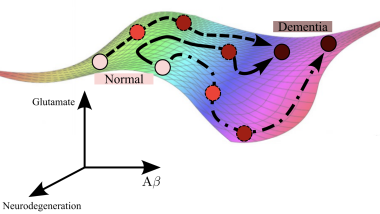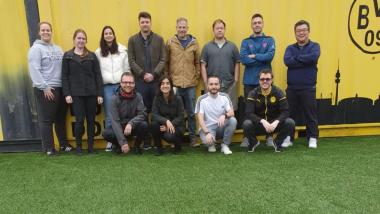The project developed by Santiago Mazuelas (BCAM) and funded by the AXA Research Fund comes to an end
- The project has been funded by AXA and has had a duration of three years. It commenced in April 2020 and concluded in September 2023
The project 'Early Prognosis of Covid-19 Infections Via Machine Learning' has been led by Santiago Mazuelas, a Ramón y Cajal researcher at BCAM and Ikerbasque. This project, financed by AXA Research Fund, comes to an end after three years of research. The project was selected under the Exceptional Call 'Mitigating the risk following the COVID-19 pandemic' and aimed to develop machine learning techniques for the early prognosis of COVID-19 infections, predicting the future severity of infections using health data obtained shortly after detection.
“Early Prognosis of Covid-19 Infections Via Machine Learning" has developed machine learning techniques for the early prognosis of COVID-19 infections, predicting the future severity of infections using health data obtained at the time of infection detection.
The techniques developed utilize multimodal and information-rich health data to predict the future severity of COVID-19 infections. The project has addressed various scientific and technical challenges in algorithm design, including dealing with unbalanced training samples affected by selection bias and the development of cost-sensitive techniques. In particular, the project has proposed a unified approach for covariate shift adaptation that overcomes major limitations of existing approaches by weighting both training and test samples. Effective techniques have been introduced that obtain weights for both sets, generalizing the conventional kernel mean matching method that only obtains weights for training samples. Furthermore, the team has presented generalization bounds for the proposed methods, demonstrating a significant increase in effective sample size. The unified approach and proposed learning methods may enable techniques capable of adapting to more general scenarios affected by attribute changes. This work has been published at the International Conference on Machine Learning (ICML) in 2023 under the title 'Double-Weighting for Covariate Shift Adaptation.’
The overall results obtained in the project may lead to significant improvements in the way medical and public health decisions are made to treat and manage infections, such as those caused by COVID-19.
"The completion of the project has helped me to expand the research group's lines of work, as well as to cover expenses related to various researchers”, states Santiago Mazuelas. Additionally, the BCAM and Ikerbasque researcher asserts that "his overall goal in the future is to continue conducting research of the highest scientific quality possible and to continue addressing problems with a high impact on society.”
From BCAM, the members who have participated and accompanied Santiago Mazuelas in this project are Rubén Armañanzas (Postdoc Fellow), José Ignacio Segovia Martín (PhD Student), Lasai Alai Barreñada (Research Technician), Mikel Cotillas (Research Technician), Sara Ambrosi (Internship), Ernesto Contreras (Research Technician), Nicolás Errandonea (Internship), and Xabier de Juan Soriano (Research Technician).
Related news
BCAM people
BCAM people
BCAM people




